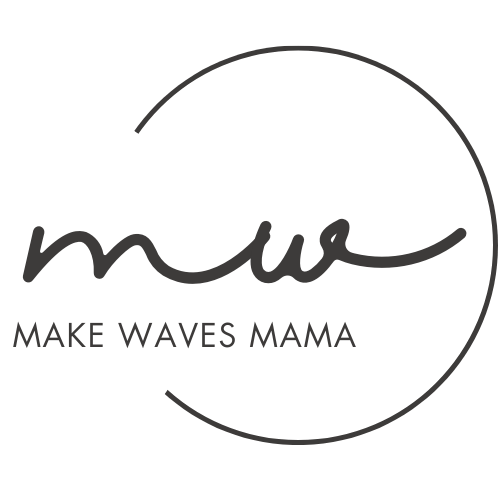Radical Acceptance: 5 Ways to Move Forward When Faced with Uncertainty
May 15, 2025
The Unwelcome Return of Uncertainty
When my husband went into remission from lymphoma in 2017, we thought the cancer chapter was closed. We went back to "normal" life - full work schedules, postponed wedding plans, all the things we had paused.
We believed we could finally move forward. But life had other plans.
In 2024, we found ourselves back at Memorial Sloan Kettering Cancer Center - this time facing leukemia. We walked through the same hospital doors where, years earlier, he had held our newborn daughter in the sunlight after finishing treatment, celebrating his story of strength and remission.
This time, everything felt heavier. We're parents now. We've already walked this road once. The unfairness of it all can feel so overwhelming some days that I can barely breathe.
The hardest part hasn't just been the treatment. It's the waiting. Waiting for test results. Waiting for the prognosis. Waiting to see if the ground beneath us will shift again.
We're living in a suspended state - where anything could change in a moment. Or nothing could, for a long while.
The Universal Nature of Uncertainty
While our version of uncertainty wears the face of cancer, I now see how universal this experience is.
Whether you're:
- Waiting on medical results
- Facing a layoff or career limbo
- Navigating a rocky relationship
- Raising kids (hello, daily unpredictability!)
- Or just living in today's uncertain world
...uncertainty touches us all.
And research confirms what we feel: humans find uncertainty more stressful than known negative outcomes.
One study by University College London found that people experienced more anxiety when there was a 50% chance of receiving an electric shock than when they knew for sure it was coming. (Here's the study)
Our brains crave certainty. And uncertainty short-circuits that.
The Ripple Effect of Others' Pain
Recently, I learned that a friend's mother is facing progressing cancer. Sitting in my car after hearing the news, I had to pull over as tears came without warning. They were tears for her family, certainly, but also tears that connected to my own deepest fears about my husband's cancer progressing. Each story like this creates ripples that touch our own vulnerabilities.
These moments force us to confront how little control we sometimes have, and how delicate this beautiful life really is. They're stark reminders of why practices like radical acceptance aren't just nice ideas - they're survival tools.
When Uncertainty Meets Mental Chatter
During periods of uncertainty, our minds work overtime. As Dr. Ethan Kross explains in his research on mental chatter (and recently discussed on The Mel Robbins Podcast), we process around 4,000 words per minute in our heads - a constant stream of inner dialogue that intensifies during stress.
This "chatter," as he calls it, can manifest as rumination about the past, worry about the future, or harsh self-criticism. When facing the unknown, these mental patterns can become particularly loud:
"What if the treatment stops working?"
"I should be handling this better."
"Why can't I stop thinking about worst-case scenarios?"
This inner noise isn't just distracting - it actually consumes cognitive resources we need for daily functioning. And yet, it's completely normal. The challenge isn't eliminating it (we can't), but rather learning how to work with it.
What Is Radical Acceptance?
One of the most powerful tools I've leaned on is radical acceptance - a practice rooted in Dialectical Behavior Therapy (DBT), and beautifully explored by Suleika Jaouad in Between Two Kingdoms.
Radical acceptance isn't about giving up. It's about seeing reality clearly - without resistance or denial - so you can respond thoughtfully, instead of reacting out of fear.
When I start to spiral, I pause and remind myself: "Right now, we're waiting. That's all we know for sure."
That simple sentence brings me back to the present, where I still have agency.
5 Practices for Tough Days
Here are five tools that have helped me feel more grounded, especially on hard days:
- The Container Practice: set aside 5 minutes each day to worry or plan. Outside that window, gently redirect: "Not now. I'll revisit this later."
- The Two-Minute Grounding Exercise: a quick sensory reset, focusing on the following. We use this with our kids, too. It helps - sometimes immediately, sometimes eventually.
- Name 5 things you can see
- Name 4 things you can touch
- Name 3 things you can hear
- Name 2 things you can smell (or imagine)
- Name 1 thing you can taste (or imagine)
- Decision Simplification: cut back on daily decision fatigue. For me, that means easy meals on repeat, capsule wardrobes, and letting go of non-essential choices.
- Micro-Certainty Creation: create small, steady anchors: a morning tea ritual, a daily walk, a regular check-in with a friend. These little things remind you that some things are still within your control.
- Both/And Thinking: let complexity coexist. Acknowledge that this is hard and there are still glimmers of joy; the future is unclear and I can choose how to show up today.
Beyond the Basics: Tools for Mental Chatter
Recently, I've been exploring additional techniques from Dr. Cross's research that specifically address the mental noise that uncertainty creates:
- Distant Self-Talk: When my thoughts spiral, I've started speaking to myself in the third person: "Susie is worried right now, and that makes sense." This small linguistic shift creates distance from overwhelming emotions and activates the part of our brain that's better at giving advice.
- Mental Time Travel: When a fear feels all-consuming, I try to imagine how I'll feel about this worry in one week, one month, or one year. This perspective doesn't dismiss the feeling, but it does contextualize it.
- Invisible Support: For friends facing their own uncertainties, I've learned that sometimes the most helpful thing isn't asking "How can I help?" but simply showing up with a meal or handling a small task without being asked.
- Nature as Remedy: On days when the weight feels heaviest, I prioritize even brief exposure to green spaces. Research shows just 20 minutes in nature significantly lowers stress hormones.
Permission to Struggle
There's often pressure to "embrace each day with curiosity and calm" when facing uncertainty. But the reality? Some days are just hard. Some moments break us. And that's okay. These practices aren't about forcing positivity when you're falling apart - they're scaffolding to help you find your way back when you're ready. The practices help precisely because they acknowledge that struggle is part of the journey.
Final Thoughts
Cancer has stripped away the noise and reminded us what really matters: health, connection, presence. It's taught us to invest in what we value most, even when the future is blurry.
I'd love to hear from you - what helps you navigate uncertainty? Drop a comment or send a message.
We may be walking different paths, but one thing is clear: we're all walking through uncertainty, together.
Stay connected
Sign-up for a mix of honest insights, tips, and stories delivered to you each week via Your Weekly Boost.
We hate SPAM. We will never sell your information, for any reason.

